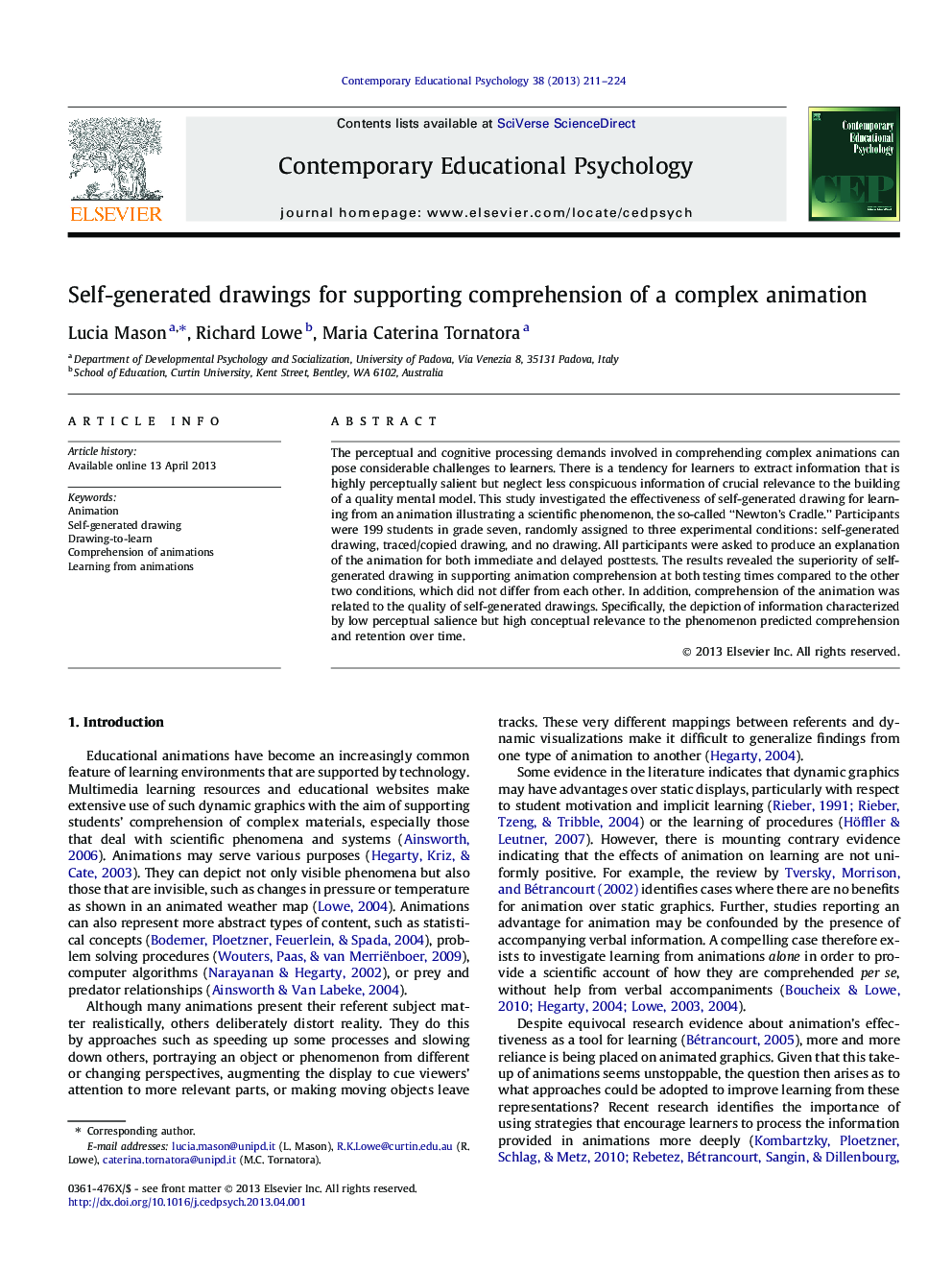| کد مقاله | کد نشریه | سال انتشار | مقاله انگلیسی | نسخه تمام متن |
|---|---|---|---|---|
| 352600 | 618603 | 2013 | 14 صفحه PDF | دانلود رایگان |
• Self-generated drawing facilitated comprehension of an animation compared to traced/copied-drawing and no-drawing.
• Comprehension of the animation was related to the quality of self-generated drawings.
• Depiction of low salience-high relevance information predicted immediate and delayed comprehension.
The perceptual and cognitive processing demands involved in comprehending complex animations can pose considerable challenges to learners. There is a tendency for learners to extract information that is highly perceptually salient but neglect less conspicuous information of crucial relevance to the building of a quality mental model. This study investigated the effectiveness of self-generated drawing for learning from an animation illustrating a scientific phenomenon, the so-called “Newton’s Cradle.” Participants were 199 students in grade seven, randomly assigned to three experimental conditions: self-generated drawing, traced/copied drawing, and no drawing. All participants were asked to produce an explanation of the animation for both immediate and delayed posttests. The results revealed the superiority of self-generated drawing in supporting animation comprehension at both testing times compared to the other two conditions, which did not differ from each other. In addition, comprehension of the animation was related to the quality of self-generated drawings. Specifically, the depiction of information characterized by low perceptual salience but high conceptual relevance to the phenomenon predicted comprehension and retention over time.
Journal: Contemporary Educational Psychology - Volume 38, Issue 3, July 2013, Pages 211–224
